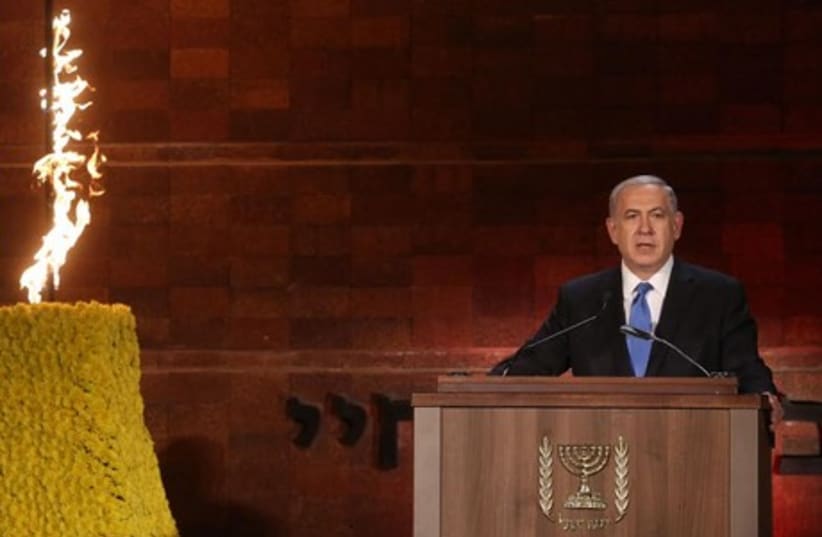Netanyahu at Yad Vashem to world leaders: Don’t repeat with Iran the mistake of the 1930s
The premier urges the world to learn the lessons of the 1930s and "see reality as it is, not how they would like it to be," in reference to the Iranian nuclear program.
